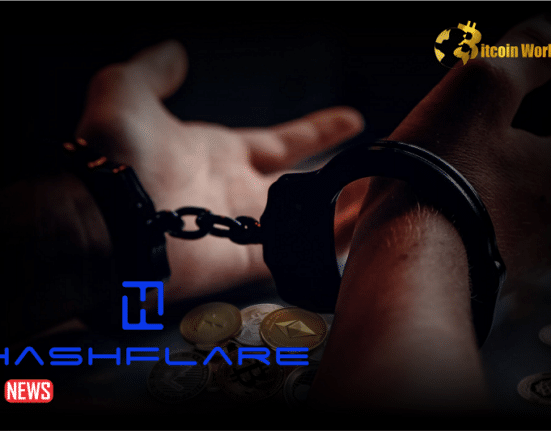- Co-founders of Bitcoin cloud miner HashFlare, have successfully appealed their extradition from Estonia to the United States.
- The two founders face 18 count charges of fraud and money laundering in the US.
The two founders of the now-defunct Bitcoin cloud miner HashFlare, Ivan Turogin and Sergei Potapenko, have been arrested in Estonia over their alleged involvement in a $575 million crypto fraud conspiracy.
HashFlare was a cloud mining company created in 2015, which purported to allow customers to lease the company’s hashing power in order to mine cryptocurrencies and gain an equivalent share of its profits.
The company was seen as one of the leading names in the business at the time but shut down a large portion of its mining operations in July 2018.
However, according to a statement from the United States Department of Justice citing court documents, the entire mining operation, run by founders Sergei Potapenko and Ivan Turõgin, was part of a “multi-faceted scheme” that “defrauded hundreds of thousands of victims.”
This included convincing victims to enter into “fraudulent equipment rental contracts” through HashFlare and persuading other victims to invest in a fake digital currency bank called Polybius Bank.
Read Also: Industry Expert Travis Kling Calls Justin Sun a Criminal, Urges His Removal From Crypto
The pair is also accused of conspiring to launder their “criminal proceeds” through 75 properties, six luxury vehicles, cryptocurrency wallets and thousands of cryptocurrency mining machines.
U.S. Attorney Nick Brown for the Western District of Washington called the size and scope of the alleged scheme “truly astounding.”
“These defendants capitalized on both the allure of cryptocurrency and the mystery surrounding cryptocurrency mining, to commit an enormous Ponzi scheme,” he said.
The HashFlare founders have been charged with conspiracy to commit wire fraud, 16 counts of wire fraud and one count of conspiracy to commit money laundering using shell companies and fraudulent invoices and contracts, and could face up to 20 years in prison if convicted.
Two Estonian Citizens Arrested in $575 Million Cryptocurrency Fraud and Money Laundering Schemehttps://t.co/PLdyf6JSEC
— Criminal Division (@DOJCrimDiv) November 21, 2022
HashFlares’ parent company HashCoins OU was founded by Potapenko and Turõgin in 2013, while HashFlare launched mining services in 2015. It initially offered contracts for SHA-256 Bitcoin and scrypt. ETHASH Ether, Dash, and Zcash options soon followed.
According to the indictment, the pair claimed HashFlare was a “massive cryptomining operation.” However, it’s alleged the company was mining at a rate of less than 1% of what it claimed and was paying out withdrawals by purchasing Bitcoin from third parties rather than gains from mining operations.
By July 2018, HashFlare announced a halt to BTC mining services, citing difficulty generating revenue amid market fluctuations.
Customers were not reimbursed for the remainder of the annual contract fees, which they had paid upfront. Other crypto assets available in the platform’s portfolio continued to operate as normal.
Allegations of the company being fraudulent were made but never proven in an official capacity.
Read Also: SEC Still Investigating Binance.US for Potential FTX-Like Fraud
The last public communication from HashFlare came through in 2019 through an Aug. 9 post, where they announced they were suspending the sale of ETH contracts because the “current capacity has been sold out.”
The company promised to resume activities in the “very near future” and teased further announcements, but nothing was ever publicly disclosed about what had happened and HashFlare quietly disappeared.
The FBI is now investigating the case and is seeking information from customers who opted into the alleged fraudulent schemes of HashFlare, HashCoins OU and Polybius.
The 18-count indictment for Potapenkos and Turõgins alleged involvement was returned by a grand jury in the Western District of Washington on Oct. 27 and unsealed on Nov. 21.














